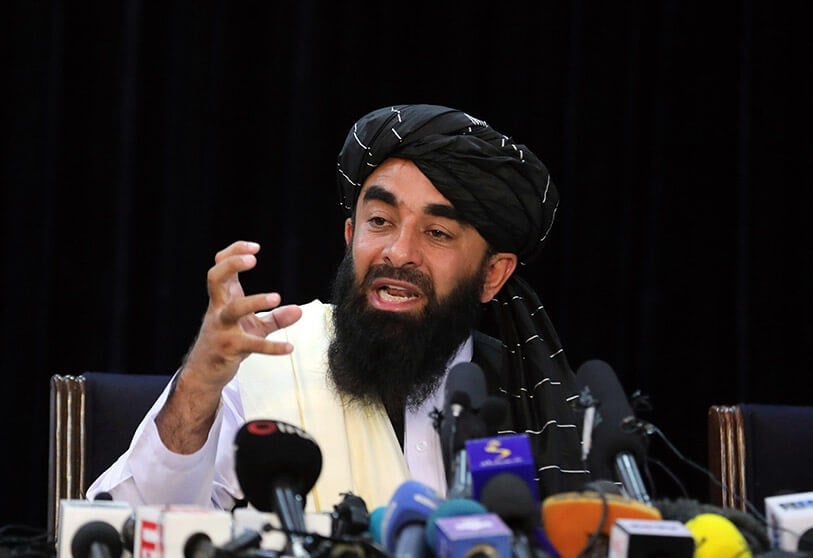Taliban supreme leader urges world to recognize government
Afghanistan's supreme leader renews his demand for the international community to recognize the Taliban administration, in a written statement sent ahead of the Eid Al-Fitr festival.
-

Taliban supreme leader Hibatullah Akhundzada
Afghanistan's supreme leader renewed his demand for the international community to recognize the Taliban administration on Friday, saying the globe had shrunk to the size of a "small hamlet" and proper diplomatic relations would aid in the resolution of the country's problems.
No country has publicly recognized the Taliban regime that took control of Afghanistan in August and reinstalled the harsh Islamist rule that is progressively banning women from public life.
In a written statement sent ahead of Eid Al-Fitr festival, which celebrates the end of Ramadan, supreme leader Hibatullah Akhundzada avoided mentioning internationally contested issues, such as reopening secondary schools for girls.
Instead, he said recognition should come first "so that we may address our problems formally and within diplomatic norms and principles."
"Undoubtedly, the world has transformed into a small village," said Akhundzada, who has not been seen in public for years and lives reclusively in Kandahar, the Taliban's spiritual heartland.
"Afghanistan has its role in world peace and stability. According to this need, the world should recognize the Islamic Emirate of Afghanistan."
His Eid message comes at a time when the country has been shaken by a series of bomb attacks, some of which have been claimed by the terrorist Islamic State group.
Akhundzada made no mention of insecurity, but said the country had been able to build "a strong Islamic and national army," as well as "a strong intelligence organization."
Link aid to rights
Many people in the international community want humanitarian assistance and recognition to be tied to the restoration of women's rights.
Following the Taliban takeover, tens of thousands of women lost their government positions, and they have also been forbidden from leaving the country – or even traveling between cities – unless accompanied by a male relative.
In March, the Taliban sparked international anger by closing all secondary schools for girls just hours after reopening them for the first time since taking power.
Several Taliban officials said the ban was personally ordered by Akhundzada.
The Eid greeting from Akhundzada did not mention female schools, but he did mention that authorities were opening new centers and madrassas (schools) for both "religious and modern education."
"We respect and are committed to all the sharia rights of men and women in Afghanistan... do not use this humanitarian and emotional issue as a tool for political ends," he said.
However, he stated that people should embrace Taliban beliefs voluntarily, rather than being compelled to do so.
"The relevant authorities should invite people towards sharia with wisdom and avoid extremism in this regard," he added.
He also stated that the government was devoted to free expression following "Islamic ideals", even though hundreds of news outlets have closed, public broadcasts of music have been outlawed, and movies and TV plays starring women have been pulled from the air.

 3 Min Read
3 Min Read








